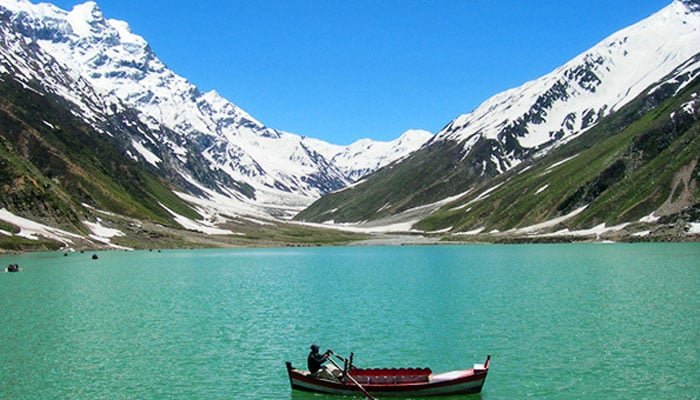Islamabad (TDI): On World’s Glacier Day, Prime Minister of Pakistan, Shehbaz Sharif, has called for support to monitor glaciers melting and to put in place early warning systems.
In his message on the first-ever observance of the World’s Glacier Day, Prime Minister drew attention towards Pakistan’s vulnerability in the face of rapid glacial melts fueled by the most noticeable impact of climate change – rising temperatures.
He noted that Pakistan is home to 13000 glaciers and that over 10000 are “rapidly receding,” causing the formation of lakes which are at risk of outbursts and flooding.
Message of the Prime Minister Muhammad Shehbaz Sharif on World Glacier Day.
March 21, 2025. pic.twitter.com/snXtrAuEaS— Prime Minister’s Office (@PakPMO) March 21, 2025
“The 2022 foods were a stark reminder of our vulnerability, with glacial melts fueling disasters that devastated communities and caused overall economic losses and damages to the tune of US$30 billion,” he added.
Prime Minister Shehbaz Sharif also stressed joint and shared “eco-tourism guidelines” to save these natural assets which have sustained communities in Pakistan’s North for decades.
He called for support from the international community so that Pakistan can monitor glacial melting effectively and adopt “climate-resilient agricultural practices, and invest in alternative water storage solutions.”
Glacial Melts Prompting Food and Water Insecurity
UNDP Pakistan, in its message on the World’s Glacier Day, focused on how this climate-induced emergency is making lives difficult for women and girls in Gilgit Baltistan, who have to walk miles to fetch water for drinking and home use.
This means that girls have to quit school and be available to bring water home from miles away. In a post on X, UNDP linked water security to education security and said, “Every drop now fuels hope, opportunity & resilience.”
Pakistan’s glaciers are melting at an alarming rate. 🏔️ With 13,000+ glaciers, the country depends on glacial runoff for water, food & energy. But climate change is accelerating glacial retreat, increasing the risk of floods, water shortages & food insecurity.
In Ghundus Valley,… pic.twitter.com/Hs9rK9XhjD
— UNDP Pakistan (@UNDP_Pakistan) March 21, 2025
It also highlighted the food insecurity which has now been multiplied by the glacier melts.
The decades-old irrigation channels are now under disruption, for the glacier’s melt has made water availability both uncertain and unexpected.
When water flows down in abundance, it causes flooding, often destroying crops. At other times of the season, water availability is scarce because seasons have shifted and spring downward flows are now displaced, causing crops to rot or perish.
Nuzhat Rana is the Managing Editor (website) at The Diplomatic Insight.




